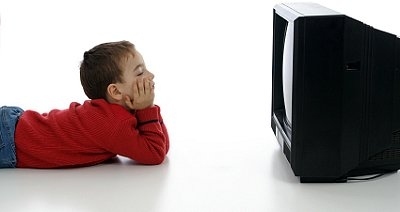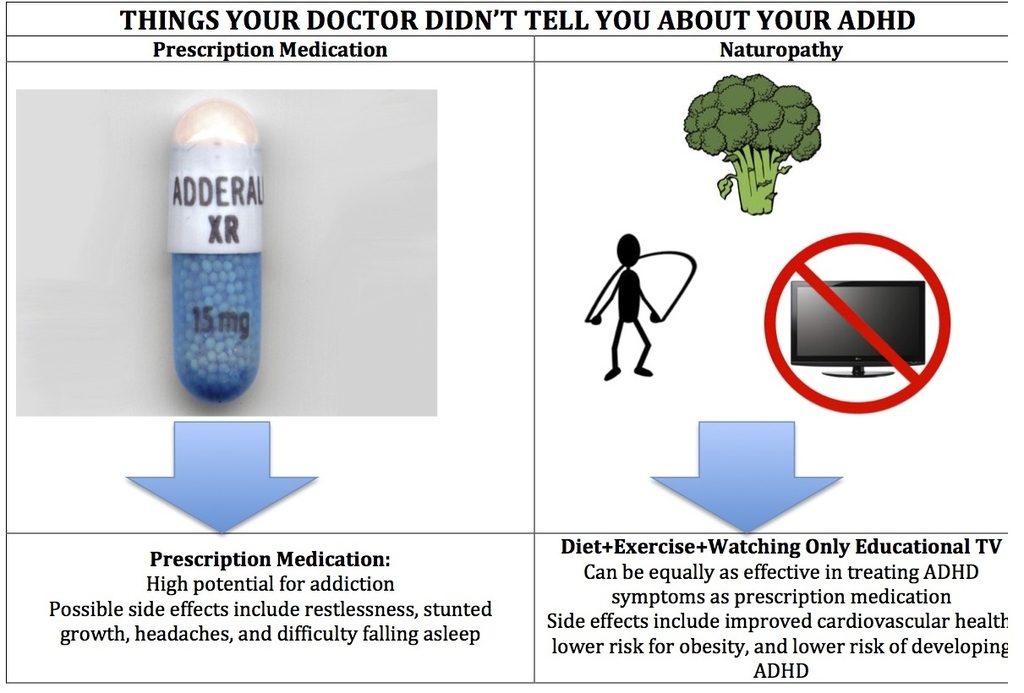1) ADHD Medication Can Be Addictive
Yes, thats right. I said the A word... Addictive. We've all been told to stay away from harmful addictive substances like cigarettes and drugs and food and nutella and lots of other things. But the same way this cat didn't not become addicted to nutella...
Nutella Make Cat (or Squirrel) Happy
A study from the National Institute on Drug Abuse indicates that common ADHD medication, like Adderall, is a schedule II drug - which means that it's easy to become dependent on or even abuse it (NIDA 2011b). So that medicine you've been taking every morning to suppress your hyperactivity? You might be physically addicted to popping those pills...
Taking these psychostimulants causes your brain to release endorphins and leaves you with a feeling of euphoria. This feeling can become addictive and make you feel less comfortable and happy when off of the medication.
While this addiction isn't always going to manifest itself, the risk is still something to consider when deciding to take ADHD medication.
But the harms don't necessarily stop there... These pills can have negative side effects on the children taking them. ADHD medications work by changing the hormones/chemical balances of a child's brain. One study examined children when on then off /off then on/off then off/on and still on medication during the experiment. This allowed scientists to examine the relative differences the medicine was creating and lead to realize that these medicines can stunt children's growth and cause nervousness, restlessness, difficulty falling asleep, and headaches ("Dextroamphetamine and Amphetamine", 2010).
Isn't the point of an ADHD medication to calm down the child and stop them from becoming fidgety/nervous? Yep, I'm positive a side effect of restlessness and nervousness is exactly what parents have in mind when they buy these medications...

2) Diet, people. Diet.
It's sad to realize how many problems in America could be solved by dieting. But hey, obesity is cool as long as it comes with a lot of good food, right?
Fat Ben Stiller is Always Funny

While it's becoming apparent that there is little (if anything) that can be said or done to convince people to start eating healthier, here's something you should know:
Dieting could help solve your ADHD.
Synthetic food coloring (found in most of the yummy foods we stuff ourselves with) can actually affect a child's behavior. A study found that following a diet with no food coloring for a while led to a decrease in ADHD symptoms... but a return to the synthetic food coloring diet was shown to increase irritability, restlessness, and sleep disturbance in the children trying it (Rowe & Rowe, 1994).
The study's results lend direct evidence to the belief that some of the factors of ADHD can be mitigated by not having synthetic additions to your food.
I know it's crazy to think that not eating things made in a factory could actually lead to your body being healthier and you being happier, but listen: science said so, and science is cool!
3) Exercise...
What's the only thing that could ever follow the suggestion of a "diet" on a self-help page? Yep, it's time to talk about exercise.
A huge cliche it may be, BUT exercise really can help solve a lot of the symptoms associated with ADHD...
In fact, results of one study demonstrated that children's short-term attention span improved directly after a session of regulated exercise (Archer & Kostrzewa, 2012). Another study showed that when tested directly after exercising, children with ADHD exhibited decreased impulsivity and increased reaction speed (Medina et al., 2010).
It seems that an increase in exercise for children with ADHD can have even more amazing effects, including increasing the quality of your sleep (as measured by the Pittsburgh Sleep Quality Index, or PSQI). Studies have shown that children with ADHD score lower on the PSQI (indicating worse quality of sleep) than children without ADHD. However, regular exercise can improve the quality of ADHD children's sleep, which in turn improves their attention span, cognitive function, and short-term memory (Tantillo et al., 2002).
Dog in Perpetual Motion
Plus... we could ALL use a higher quality of sleep.
4) Television Shows
It really doesn't seem fair that companies can produce fictional, uneducational, appealing TV shows that we really want to watch... and when we do watch them, they can end up negatively affecting our general behavior. Go figure.
A study released in Pediatrics journal noted that exposure to certain types of television shows (before the age of 3) can lead to problems with your attention span. This study divided television programs into three categories: educational (e.g. Dora the Explorer), nonviolent (e.g. The Lion King), and violent entertainment (e.g. Looney Toons). Results? The amount of time you spent watching violent or nonviolent shows was directly related to the risk of having attention problems (such as ADHD) later on in life. And, of course, the educational shows had no such ties (Zimmerman).

Too Long, Didn't Read?
First: stop being so lazy and read the entire article. It's not that long.
But if you still refuse let me sum it up:
ADHD medication has its problems: It's potentially addictive and can hurt children's growth and lead to negative side effects.
Alternatives to these medications exist: decreasing ingestion of synthetic food coloring, increasing daily exercise, and decreasing time spent watching uneducational television programming can be as effective at regulating ADHD symptoms as prescription medications.
Studies are being released everyday that agree or disagree with the findings presented above; I'm not claiming that these lifestyle changes are 100% effective nor that they should replace prescription medicine. I'm not even advocating for you to get off of your medication or treat ADHD in a different way.
I am saying that alternatives exist and that there are negatives to common medication (like Adderall) that the Pharmaceutical Companies don't necessarily tell you about.
All of these things are worth knowing and worth understanding. Take this information and any other questions you may have about ADHD medication, and go discuss the best path for your ADHD treatment with your doctor. You never know what might come out of this conversation.

References
Medina, J. A., Netto, T. L. B., Muszkat, M., Medina, A. C., Botter, D., Orbetelli, R.,Scaramuzza, L. F. C., Sinnes, E. G., Vilela, M., & Miranda, M. C. (2010). Exercise impact on sustained attention of ADHD children, methylphenidate effects. ADHD Attention Deficit and Hyperactivity Disorders, 2(1), 49-58. Retrieved from http://link.springer.com/article/10.1007/s12402-009-0018-y#page-1.
(2010). Medline Plus: Trusted Health Information for You. In Dextroamphetamine and Amphetamine. Retrieved November 18, 2013, from http://www.nlm.nih.gov/medlineplus/druginfo/meds/a601234.html.
National Institute on Drug Abuse. (2011). The Science of Drug Abuse & Addiction. In Commonly Abused Prescription Drugs Chart. Retrieved November 18, 2013, from http://www.drugabuse.gov/drugs-abuse/commonly-abused-drugs/commonly-abused-prescription-drugs-chart.
Rowe, K. S. & Rowe, K. J. (1994). Synthetic food coloring and behavior: a dose response effect in a double-blind, placebo-controlled, repeated-measures study. Journal of Pediatrics, 125(5), 691-698. Retrieved from http://www.ncbi.nlm.nih.gov/pubmed/7965420.
Tantillo, M., Kesick, C. M., Hynd, G. W., & Dishman, R. K. (2002). The effects of exercise on children with attention-deficit hyperactivity disorder. Medicine & Science in Sports & Exercise, 34(2), 203-212. Retrieved from http://www.setantacollege.com/wp-content/uploads/Journal_db/The%20effects%20of%20exercise%20on%20children%20with.pdf.
Zimmerman, F. J. & Christakis, D. A. (2007). Associations Between Content Types of Early Media Exposure and Subsequent Attentional Problems. Pediatrics. American Association of Pediatrics. Retrieved November 26, 2013, from http://pediatrics.aappublications.org/content/120/5/986.full.

